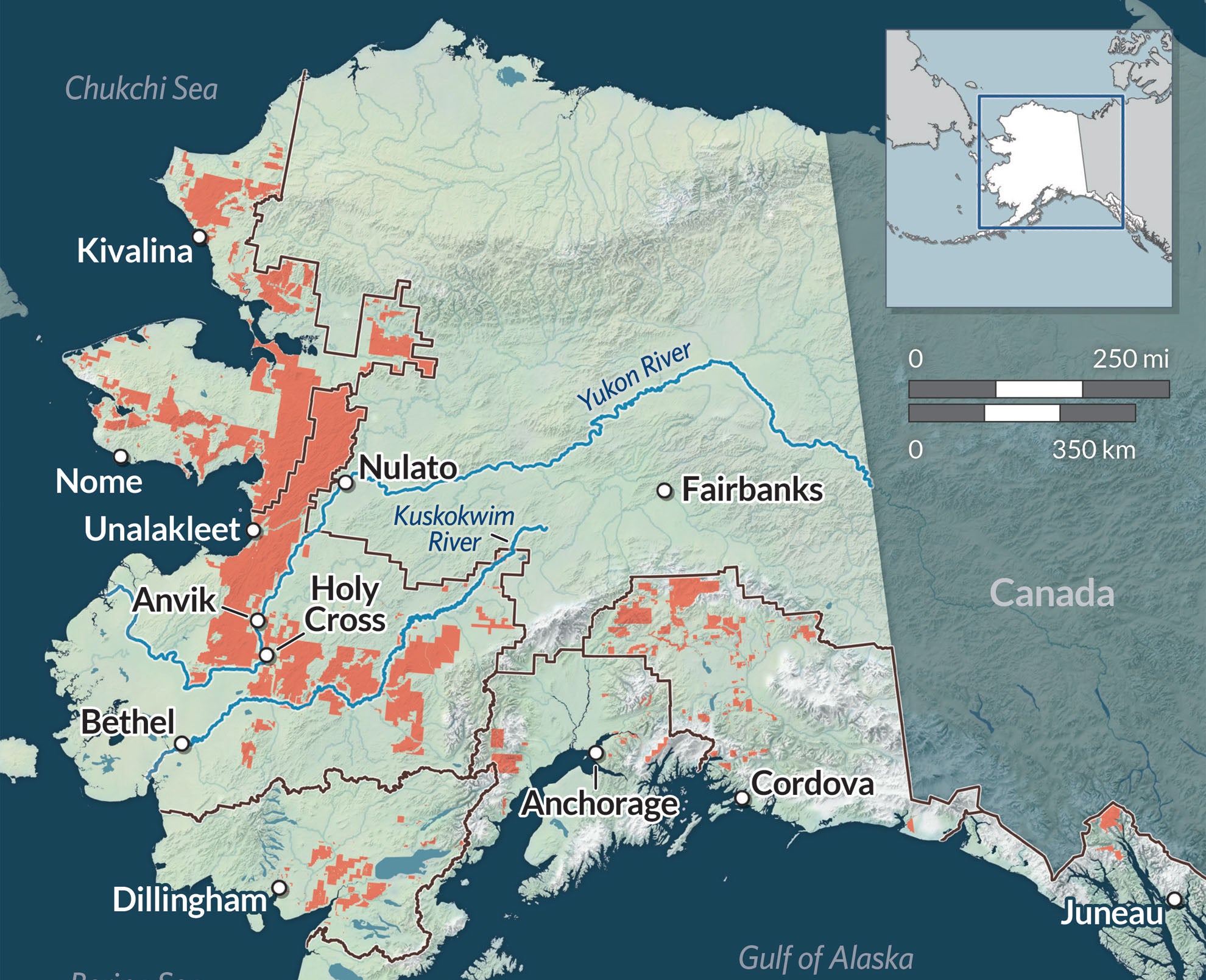Protect public lands in Alaska
What's At Stake
Alaska’s fish and wildlife – and the communities who depend on them – need our help. As part of the Alaska Native Claims Settlement Act (ANCSA) passed more than 50 years ago, more than 150 million acres of intact ecosystems across Alaska were withdrawn and protected from fossil fuel leasing, hard rock mining, and other extractive development. The lands are named D-1 lands because they are currently protected by section 17 (d)(1) of ANCSA.
These protections were put into place to ensure the public interest in the lands was considered, including preserving food access within these ecologically-rich areas for Alaska Native peoples and communities. The Bush administration and later the Trump administration tried to open these lands to industrial development but, thankfully, they didn’t complete that work.
Now, the Bureau of Land Management (BLM) – under pressure from those who would still like to develop these lands – has issued a draft environmental analysis considering the impacts of opening 28 million acres of these D-1 lands. You can help protect these intact ecosystems which are critical for biodiversity, climate protection, and sustaining Alaska Native Tribes’ way of life by urging the BLM to retain these important protections.
The lands at stake crisscross Northwest, Southwest, Southcentral and Southeast Alaska. They support significant salmon populations, large caribou herds, important migratory bird habitat for hundreds of migrating species and many other fish and wildlife species.
More than 80 Tribes and Tribal organizations in Alaska have signed a letter to U.S. Secretary of Interior Deb Haaland noting that these BLM-managed lands support important subsistence resources for thousands of Athabaskan, Aleut, Denaʼina, Inupiat, Yup’ik, and Tlingit peoples. The letter states that for Alaska Native communities off the road system, over 80% of food consumed comes directly from the surrounding lands and waters.
These lands are critical to biodiversity and as intact ecosystems, help to serve as a carbon sink and to provide a buffer to our changing climate.
Opening up these lands to industrial development like mining or oil drilling would harm intact ecosystems, threaten fish and wildlife and further exacerbate food security and cultural concerns for Alaska Native people and others living in remote Alaska communities. Send a letter today to urge the BLM to retain these important protections on Alaska’s public lands.

Delivery to Bureau of Land Management
Important Notice
Your message is delivered to a public agency, and all information submitted may be placed in the public record. Do not submit confidential information.
By taking action, you will receive emails from Earthjustice. Change your mailing preferences or opt-out at any time. Learn more in our Privacy Policy. This Earthjustice action is hosted on EveryAction. Learn about EveryAction’s Privacy Policy.
Why is a phone number or prefix required on some action forms?
Trouble Viewing This Action?
If the action form is not loading above, please add earthjustice.org as a trusted website in your ad blocker or pause any ad blockers, and refresh this webpage. (Details.) If the action form still does not display, please report the problem to us at action@earthjustice.org. Thank you!
Your Actions Matter
Your messages make a difference, even if we have leaders who don't want to listen. Here's why.
You level the playing field.
Elected officials pay attention when they see that we are paying attention. Read more.
They may be hearing from industry lobbyists left and right, but hearing the stories of their constituents — that’s your power.
Our legislators serve at the pleasure of the people who gave them their job — you.
Make sure your elected officials know whose community and whose values they represent. When you contact your elected official, you’re putting a face and a name on an issue.
Whether or not you voted for them, they work for you, for the duration of their term.
Make sure your elected officials know whose community and whose values they represent. (Find your local, state, and federal elected officials.)
Your action is with us in court.
If a federal agency finalizes a harmful action, the record of public comments provides a basis for bringing them into court. Read more.
Throughout each of the public comment periods we alert you to, Earthjustice’s attorneys are researching and writing in-depth, technical comments to submit — detailing how the regulation could and should be stronger to protect the environment, our communities, and our planet.
We need you to join us — your specific experiences, knowledge, and voice are crucial to add to the Administrative Record through the comment periods.
Lawsuits we file that challenge weak or harmful federal regulations rely on what was submitted during the comment period. The court can only look at documents that are in the Administrative Record — including the public comments — to decide if the agency did something improper.
Your actions aid our litigation. Taking action and submitting comments during a comment period is substantively important.
It’s the law.
Federal agencies must pause what they’re doing and ask for — and consider — your comment. Read more.
Many of us may have never heard of the National Environmental Policy Act (NEPA) and the Administrative Procedure Act (APA), but laws like these require our government to ask the public to weigh in before agencies adopt or change regulations.
Regulations essentially describe how federal agencies will carry out laws — including decisions that could undermine science, or weaken safeguards on public health.
Public comments are collected at various points throughout the federal government’s rulemaking process, including when a regulation is proposed and finalized. (Learn about the rulemaking process.) These comments become part of the official, legal public record — the “Administrative Record.”
When the public responds with a huge outpouring of support for environmental protections, these individual messages collectively undercut politicians' attempts to claim otherwise.
What this means is each of us can take a role in shaping the rules our government creates — and ensuring those rules are fair and effective.